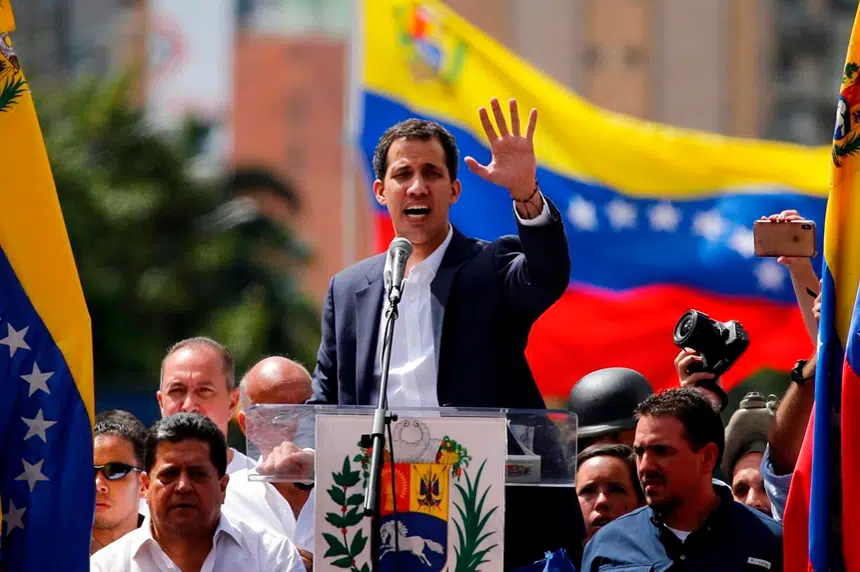As political tensions increase in Venezuela, a former University of Regina student is keeping tabs on what’s happening in his home country.
Carlos Prieto grew up in Caracas, Venezuela, and came to the University of Regina in 2012. After he graduated in 2016, he moved to Washington D.C. where he is currently a radio producer for a local news station.
Venezuelan President Nicolas Maduro won his re-election bid in late 2018 during a controversial election where some major candidates were not allowed to run.
The opposition-led Congress did not validate the election results which sparked protests on Jan. 23.
Prieto said that day holds a special meaning in the country because back in 1958 a coup was held against a dictator.
Citing the constitution, Juan Guaido, the president of the Venezuelan congress, claimed he was the interim-president due to a lack of competency in the presidency.
Prieto said there have been a lot of criticisms over the way Maduro has run the country since taking power.
“The country has had a million per cent inflation over the past couple of years, it’s become one of the most dangerous countries in the world,” Prieto said.
He also mentioned the oil reserves have been depleted, people don’t have enough money to buy food and water is a privilege.
There have also been political and democratic complaints as well.
“The Venezuelan government hasn’t really engaged in fair elections for years. When they did – after facing massive pressure – they lost the power of Congress and then they effectively stripped it of power and established a parallel congress that didn’t really have a fair election process.”
Prieto said Guaido claiming to be president makes things very complex in the country.
“Overall the Maduro presidency doesn’t really have a national claim, as you remember last year and the year before there were massive protests that led to violence,” Prieto said.
“If you’re a supporter of the opposition, you celebrate the decision because you effectively have a new president of the republic. Now, whether or not the Supreme Court and institutions are going to recognize Guaido as the president, that’s kind of what is to happen.”
Prieto said his parents and other family members no longer live in the country except for a few friends and aunts. He said he’s spoken to people and reporters who were at the protest in Venezuela and described it as being a massive demonstration for democracy.
“In Caracas we have huge highways that when there’s massive protests get really filled with people and the city kind of shuts down and yesterday was one of the biggest ones I’ve seen.”
Prieto admitted he’s a pessimist and is unsure how this protest will be different from ones in the past but is interested to see what happens since both Prime Minister Justin Trudeau and President Donald Trump recognized Guaido as the president.
“This puts more pressure internationally and institutionally on the Maduro regime, but it’s worth pointing out Maduro has faced sanctions by the United States and other governments … so you could make the case there is already international pressure against Maduro. This is an elevation of that, for sure, but I am a little skeptical about what this will really bring.”
He said it will be interesting to see what happens in the next few weeks because past opposition leaders have stood up to Maduro but have backed down when pressured.
“It’s a very delicate time in the country and it’s very much worth following up on what Guaido does, how the foreign governments follow up and how Maduro responds. I think the next week is going to be crucial.”







